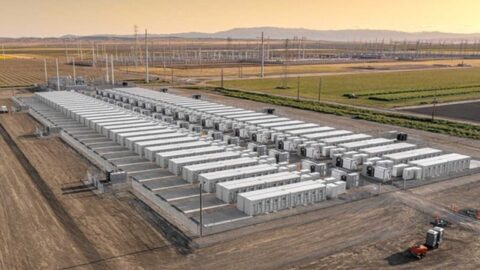Ensuring New York’s All-Electric Buildings Act delivers on climate goals
By Casey Horan & Magdalen Sullivan
- The All-Electric Buildings Act can accelerate the energy transition and help decarbonize New York’s building sector, which is the largest source of climate pollution in the state.
- Potential exemptions, particularly the broad framework proposed by the New York Department of Public Service, threaten to undermine the Act’s effectiveness and the state’s climate progress, necessitating a more precise and data-driven standard for granting exemptions.
New York’s All-Electric Buildings Act aims to curb gas expansion and promote building electrification, a critical step since buildings are the state’s largest source of climate pollution. However, potential exemptions threaten to weaken its impact. Environmental Defense Fund recently submitted detailed recommendations to New York regulators to ensure the Act supports the state’s climate progress.
We advocate for limiting exemptions to align with the Climate Leadership and Community Protection Act , New York’s foundational climate law. Our recommendations also emphasize the importance of affordability, noting that new gas infrastructure could become a “stranded asset,” leaving consumers with unnecessary costs.
Starting January 1, 2026, the All-Electric Buildings Act mandates updates to state building and energy codes, restricting fossil fuel equipment in new buildings. The law, however, allows an exception if “electric service cannot be reasonably provided by the grid.” While utilities will ultimately determine who qualifies for an exemption, the Public Service Commission must first establish a clear “reasonableness” standard. By adopting a reasonableness standard that is sufficiently flexible but narrow in scope, the Commission can maximize the benefits of the law and facilitate widespread electrification of New York’s buildings sector.
Climate progress must remain the guiding principle
The CLCPA sets ambitious greenhouse gas reduction targets for New York: 40% below 1990 levels by 2030, 85% by 2050 and net-zero emissions statewide by 2050. Buildings contribute significantly, accounting for nearly one-third (31%) of New York’s total emissions, primarily from fossil fuel combustion for heating, hot water and cooking. The All-Electric Buildings Act supports these goals by requiring new buildings to adopt electric alternatives. However, granting widespread exemptions to this requirement could undermine the law’s effectiveness, allowing expensive and polluting fossil fuel infrastructure to persist.
In February 2025, New York’s Department of Public Service proposed a framework for determining when exemptions would be considered reasonable under the law. This standard would permit fossil fuel equipment in new buildings if necessary electric grid upgrades would take 18 months longer than upgrades for a combined electric and fossil fuel service. EDF believes this framework is too broad and risks jeopardizing state climate goals. We urge the DPS to adopt a more precise, data-driven framework with a clear analytical basis for any granted exemptions. The DPS proposal overlooks the complexities of construction schedules, grid upgrades and regional timelines. While some flexibility is needed for grid reliability, an overly broad exemption could lead to unnecessary fossil fuel infrastructure, defeating the Act’s purpose.
Incentivizing grid-friendly development
EDF also recommends that exemptions only be granted to developers who have explored and, where feasible, implemented strategies to reduce their grid impacts. Exemptions should not be available for buildings that inflate electric demands and extend utility upgrade timelines by using inefficient equipment like electric resistance heating.
Technologies such as high-efficiency heat pumps, enhanced insulation and distributed energy resources reduce electric bills and grid strain, facilitating timely electrification without fossil fuels. These cost-effective solutions are crucial for a clean energy transition, and EDF urges the Commission to treat them as baseline requirements, not optional additions.
Furthermore, there are some circumstances under which exemptions should be entirely prohibited. The Commission should adopt a standard that disallows exemptions that would expand the gas distribution system — except where otherwise required by preexisting law. Such a policy would be aligned with CLCPA’s mandate to reduce greenhouse gas emissions and the Commission’s efforts to phase down gas reliance through long-term planning and regulatory reforms.
Exemptions should also be denied when gas would serve as backup in hybrid systems, especially when trucked-in fuels like propane could suffice. One analysis has shown that over time, pipeline-based systems become significantly more expensive than delivered fuels, creating unnecessary long-term costs and fossil fuel dependence.
Defining “reasonable” for a cleaner future
Effective implementation of the All-Electric Buildings Act is vital for New York to achieve its electrification and climate goals. The DPS’s proposed exemption standard risks undermining New York’s climate progress. The adjustments recommended by EDF will help ensure developers meet their obligations under state policy and support the transition to a decarbonized building sector.













